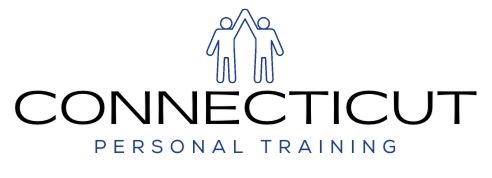If fitness is your passion and you’re wishing to make a change in people’s lives, then personal training is for you. But, what is needed to become a good personal trainer? In this article, we will look at the educational requirements, certification, and competencies required to be a good certified personal trainer.
Earn a Personal Training Certification
It starts with having a certification from a reputable fitness body, which is a fundamental requirement for becoming a personal trainer. These organizations have laid down some educational prowess and technicalities to be met in educating certified personal trainers to train their clients effectively and safely.
The American Council on Exercise (ACE), National Strength and Conditioning Association (NSCA), American College of Sports Medicine (ACSM), and National Academy of Sports Medicine (NASM) are some major certifications. Every certification entails covering a specific subject matter and exam.
Exercise Physiology and Anatomy: Grow Your Proficiency
Knowledge relating to how the human body works and its response towards exercise is crucial in fitness training in order to develop proper workout programs, including methods to avoid injuries. Taking a course in exercise science and anatomy will help you design efficient training programs acceptable to your clients.
Gain Practical Experience
Earning a certification is a great start, but you can’t stop there. To be a successful personal trainer, you are required to have practical experience from an internship or working under a superior trainer. This will enable you to apply your existing knowledge in practice and be in a position to learn from those with more experience and expertise.
It will help you to adapt appropriately in dealing with clients ranging from the young to the elderly, occasional trainers to pro-athletes, beginners, and even the unfit since you will be in a position to change their modes of workout and their diet in order to achieve their objectives. Practical experience enhances your training techniques and hones your communication abilities.
Communicate Effectively to Interact With People
Lack of proper interpersonal skills has a negative impact on the client-trainer relationship, with less connection during training. Personal trainers should be good listeners since this enables them to address any needs of the client whenever necessary.
Keep Your Drive Up and Never Stop Growing
The fitness industry is dynamic, and new data, strategies, equipment, and procedures surface with growing frequency. Fitness trainers require motivation and commitment to learning, especially in an ever-changing market, in order to be able to offer the best to your clients.
You should be networking, going to conferences, seminars, and workshops, keeping up with latest trends, and learning new updates in the fitness industry. To be able to help your clients effectively and sustain a long-standing career in this line of work, you should keep on learning more and keep abreast with current and up-to-date science.
Learn Business and Marketing
Personal trainers also require business and marketing skills to succeed. Some of the key steps relate to coming up with a business plan, acquiring customers, and promoting your services to customers. Fitness trainers need to have active accounts on social media since many clients will look for their fitness trainer online.

Practice Professionalism
Being professional in all aspects of being a personal trainer is standard, but to be a one-on-one specialist is going to make you different from the others out there. Knowing all about weight loss, cardio exercise, strength training, sports conditioning, and exercise for seniors will benefit you. Being focused on a particular area can result in better-paid positions and more satisfying jobs.
Obtain Insurance and Get Professional Liability
As a personal trainer, you have to pursue professional liability insurance to cover yourself in cases of a client’s injury or if they sue you. Most of the fitness centers and gyms where personal trainers work require this insurance.
There are so many insurance companies in the market today, so it is essential to identify an insurance provider who can meet your insurance needs and whose policy is relatively affordable. Purchasing professional liability insurance is a sign that you value the lives and well-being of your clients through safe training.
Personal training is a noble profession that demands commitment, effort, and training to help others. You should have a certification, practical experience, communication skills, and interpersonal skills, so that you can be on the right track as you construct your professional and fulfilling career in the fitness industry. Do not forget to stay motivated, keep learning, and invest in your personal development because these are aspects that will make you stand out in the job market for personal training services.



